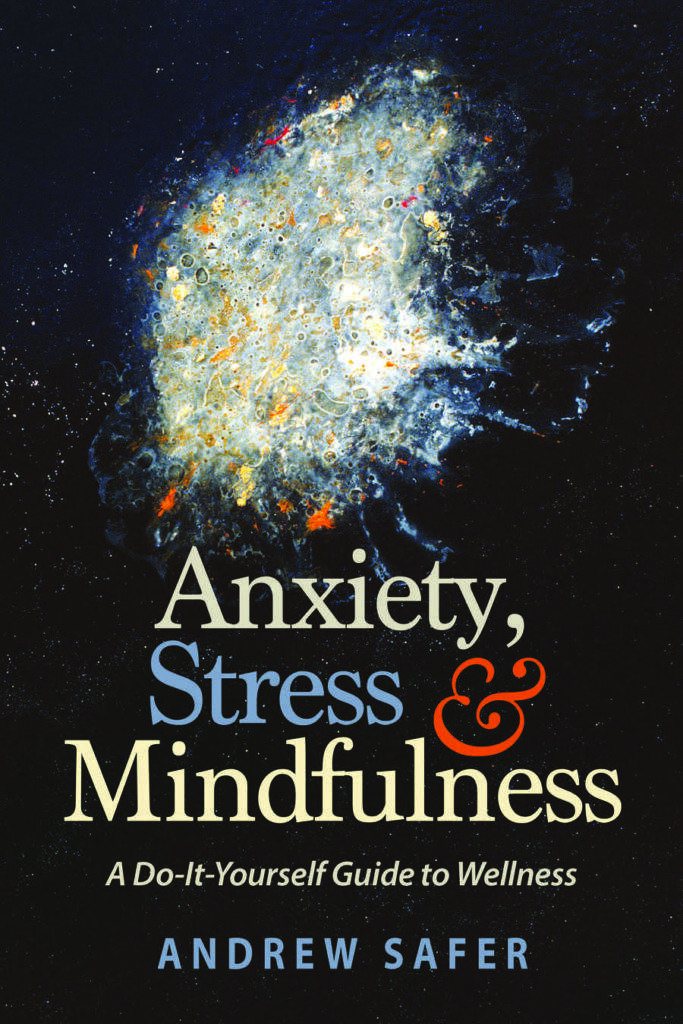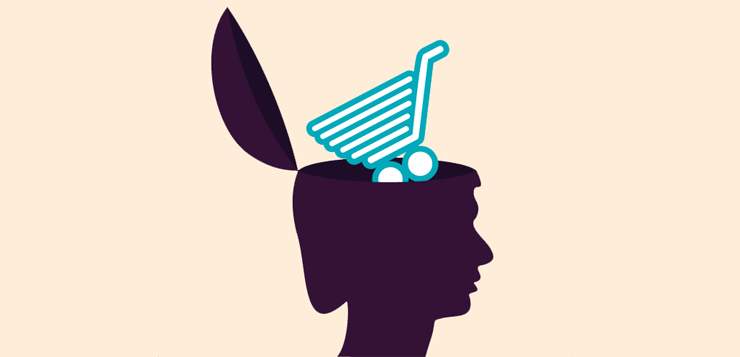Your father who has dementia has to move out of his house and go into a home. First there’s the emotional toll, and then the practicalities: finding a suitable and affordable place, getting him oriented to moving, and then spending your evenings wading through 83 years of his life, deciding what to keep and what to throw out. You’re also in the middle of an online course you’re taking to qualify for a higher-paying position at work. You’re living on a budget without a hair’s breadth of wiggle room. You begin adding up the time you’ll have to take off work. The calculator in your head never stops.
Your ongoing swirl of concerns, hopes, and fears creates a mental dust cloud, reminiscent of the one that followed Pigpen in the Peanuts comic strip. I shouldn’t have said that to Dad. I bet that hurt him. The next time I see him I need to soften the blow… I’ll never be able to prepare for tomorrow’s meeting… I know there were some groceries to pick up, but what were they? I forgot to reply to Sally’s message on Snapchat…
Through some mysterious, ongoing process, the mental threads of our lives morph into an ever-changing tapestry. It seems that the harder we try to keep up, the further behind we fall, which generates further raw material for our ongoing weaving project. You blame your father for his lousy timing. Your sister in Connecticut who’s never around when you need her. Your boss whose lack of boundaries drives you crazy. Your spouse who blithely drifts through life in spite of the latest emergency. But the sum of all these complaints doesn’t begin to match the immensity of your feelings. Alexis Zorba (Anthony Quinn) coined the phrase “the full catastrophe” to describe the phenomenon, in the movie Zorba the Greek. Jon Kabat-Zinn borrowed the phrase for his first book on mindfulness, Full Catastrophe Living.
How We Hold Stress and Uncertainty
You’re trapped in a seamless web woven from the flotsam and jetsam of your life. It’s anybody’s guess just how your boss’s need for an answer right smack in the middle of little Julie’s piano recital, your rent arithmetic, and your father’s imminent move produce your current state of mind. Since you don’t have a clue where this runaway train is headed, anxiety lurks in the background.
There is nothing unusual about a father succumbing to dementia, children taking lessons after school, a boss texting whenever he feels like it, or taking an extra course to advance your career. But when you simmer them all in a pot and add a dash of road rage, a looming tax deadline, running out of toner on the last page of your report, and a crick in your neck—you’re staggering under the weight of it all. With each new demand, whether it is placed on us by circumstance or we generate it ourselves, another straw lands on the camel’s back. Each additional straw finds its way to the proverbial pile, and soon, the famous “last straw” adds its minuscule grace note, and all hell breaks loose! It’s lack of awareness on our part that allows these pressures to build to unsustainable levels.
Simplicity is always available to us, but when we rush ahead we miss it over and over again.
Mindfulness practice doesn’t teach us the ins and outs of stress management, but it helps us develop awareness. We might find that we are showing up more in our own lives—noticing both the magnolia tree when it starts to bloom, and the hurtful thing we’re about to say. Becoming better acquainted with our own mind helps us to recognize our patterns to overcommit and overpromise, which keep us stretched too thin. Instead of blowing past the early warning signs of stress—such as a knot in our gut or our voice getting hoarse—we start to see these body cues as allies. They are signals to disengage from what we’re doing, take a mini-break, and come back to address our circumstances with an open mind. Heeding these cues can be the first step toward lightening the load on the overburdened camel.
That’s all well and good, but we want a solution! We want to catch a break! We want to get anxiety and stress off our back! Period! If we have an infection and go to the doctor, she’ll write a prescription for an antibiotic. We do as she says, and presto! We’re on the mend. Why doesn’t it work that way with mindfulness?
We can go see a doctor, but we still have to do the work. If we practice with a goal in mind—“If I do this, then my anxiety is going to disappear”—we have an objective outside this present moment and this circumstance. We might as well be chasing butterflies when we need to be stacking firewood. When it comes time to do mindfulness practice, that approach doesn’t hold water. We can’t subtract manual labor from the process. If we hang on to our goal-orientation through it all, we’ll end up killing the goose that lays the golden egg.
Let’s say you inherit a baseball stadium and all you do is throw some pitches in the bullpen. You’re wasting the rest of the property! Mindfulness practice makes use of the whole stadium. There’s an unbiased, open mind that accommodates everything. We’re introduced to this vast mind and the opportunity to explore it.
Stepping Out Into the Open
When you’re trying to do too many things at once, it’s easy to get overloaded. Simplicity is always available to us, but when we rush ahead we miss it over and over again.
Simple situations can become complicated quickly. On the way home, you stop off at the grocery store to pick up something for dinner while troubleshooting a problem at work. Later, you’re ready to cook supper and realize you forgot the tomato sauce for the spaghetti and meatballs, so, after giving yourself a good swift mental kick, you head back to the store. You’re busy beating yourself up for your inattentiveness, so you don’t notice the school zone: 30 km per hour. Sure enough, a police officer pulls you over and hands you a whopping ticket. Your routine trip to the store morphed into a mishmash of dramas, subplots, and painful consequences. Through our lack of attention and awareness, and our tendency towards complexity, life can become very involved, very quickly.
Instead of blowing past the early warning signs of stress—such as a knot in our gut or our voice getting hoarse—we start to see these body cues as allies.
The simplicity of mindfulness practice can help thin out our dust cloud and interrupt our perpetual mental tapestry-weaving project, even if it’s just for a moment. As we’re rushing down rabbit holes, a moment of mindfulness creates a spark of sanity in the midst of the barrage of thoughts, feelings, emotions, urges, and sensations.
Following the lead from our meditation practice, we keep coming back to now, which provides a check on our tendency to complicate things. As we begin to become more familiar with the practice, we become less mesmerized by the content of our thoughts—the storyline—and more interested in the fact that we can recognize the whole picture as thoughts. Gradually, over time, as our connection to now strengthens, we become a bit less invested in our thought processes. More and more, we stick with simplicity.

As we begin to appreciate simplicity, trimming back unnecessary and frivolous activities starts to come along of its own accord. We don’t require as much stuff—materially, activity-wise, and psychologically. This natural thinning-out process allows space into our previously crowded life.
Excerpt reproduced by permission from Andrew Safer, Anxiety, Stress & Mindfulness: A Do-It-Yourself Guide to Wellness (Wimberley, TX: 2nd Tier Publishing, 2018)
read more
How to Tame the Wanting Mind
What feels like “enough”? Carley Hauck explores how to build a healthier relationship to the things we’re attached to—and the things we desire.
Read More
Keeping a Cool Head and Warm Heart in Challenging Times
Cooling the fires of reactivity by cultivating equanimity so we can find steadier ground on which we can stand to meet the challenges of the day.
Read More
How Walking In the Woods Helped Ease My Anxiety
Once writer and health researcher Misty Pratt stopped fighting nature, she was able to see its beauty, and how she is connected to it.
Read More










